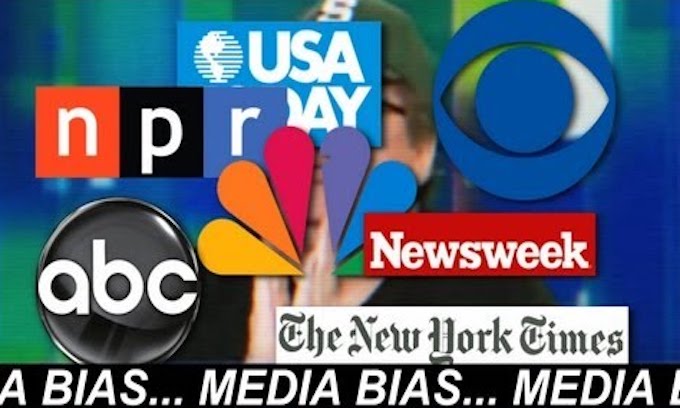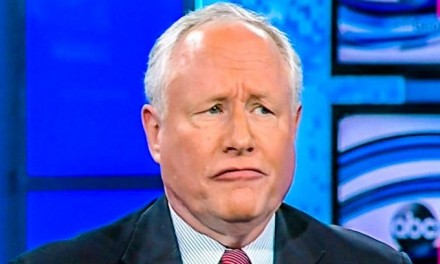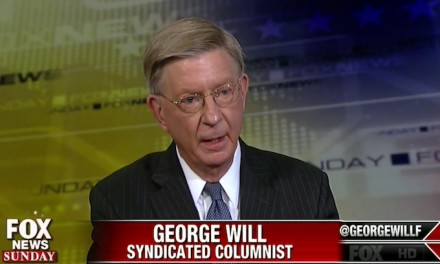Last week, I argued that Donald Trump’s frequent and decisive use of the presidential pardon, which has been challenged by the national media boo-birds, is a prime example of how he takes seriously his constitutional powers, but there is an even more absurd challenge of this president’s executive power that is under way in the investigation by Special Counsel Robert Mueller.
President Trump was painted last month by the New York Times as having gone rogue for having had a conversation with Attorney General Jeff Sessions about the attorney general’s idiotic decision to recuse himself “from any existing or future investigations of any matters related in any way to the campaigns for President of the United States.”
According to the Times, Trump’s request that Sessions reverse himself was at least “potentially inappropriate” and is now under investigation by Mueller as evidence that “Mr. Trump tried to obstruct the inquiry itself.” This led to a flurry of stories in the national media that jumped from “potentially inappropriate” to flagrantly illegal and outright impeachable.
But let’s step back. Sessions based his recusal on discussions with “[Justice] Department ethics officials.” That’s well and good, but the attorney general doesn’t work for the department’s ethics officials; they work for him. And by the same token, Attorney General Sessions works for the president of the United States, and not vice versa.
Yet the argument has been made repeatedly in the mainstream media that President Trump has no authority over the Department of Justice. It must act independently, we are told. For the president to suggest policies to the attorney general or, more to the point, to ask the attorney general to prosecute certain crimes or not to prosecute others would be an obstruction of justice.
At least that’s the argument now. It certainly wasn’t the argument being made by these same media munchkins in 2011 when President Obama ordered the Department of Justice to cease enforcing or defending the Defense of Marriage Act, by which Congress had defined marriage as the union of one man and one woman. You would think that ordering the attorney general not to enforce a law would be considered “obstruction of justice,” but no — it turns out that obstruction is actually having a conversation with your attorney general.
Now, here’s where that darned, pesky Constitution comes into play. First of all, the Constitution does not recognize the media as a branch of government. Yes, its role as a critic is protected by the First Amendment, but the press does not have the right to create law, to execute law or to settle legal disputes. Those powers must be found in the Constitution itself, and nowhere does that august document give either the press or Congress itself the authority to dictate to a president how his Department of Justice shall operate. It is the president himself who solely exercises what is called in Article II of the Constitution “the executive power,” and part of that power is appointing heads of the executive departments and overseeing their work.
It is spelled out in Article II, Section 2, of the Constitution that the president “may require the Opinion, in writing, of the principal Officer in each of the executive Departments, upon any Subject relating to the Duties of their respective Offices.” If he may require the opinion in writing, he certainly may also have a conversation with the attorney general about any subject relating to his duties — and Sessions’ recusal certainly had direct and significant bearing on his duties. In fact, absent a role in the so-called Russia investigation (hereinafter known as the Mueller Witch Hunt), Attorney General Sessions might just as well have stayed in the Senate since he has been “missing in action” during the most significant abuse of power in the history of the republic — that committed by the FBI and the Department of Justice under President Obama.
It should also be pointed out to the Mueller Witch Hunt that the Judiciary Act of 1789 which created the office of “attorney-general for the United States,” spelled out that one of the duties of the attorney general was “to give his advice and opinion upon questions of law when required by the President of the United States.” If the attorney general can’t be asked to explain and defend his reasoning for taking the drastic step of recusal, then he ought not be attorney general. Nor, in any investigation short of a witch hunt, can a conversation between the president and the attorney general who works for him be considered obstruction of justice, especially when there is no criminal predicate.
The argument that the attorney general must be independent of the president for purposes of appearance of propriety has no constitutional validity, and if Democrats choose to establish the attorney general as a separate constitutional office elected by the people and answerable only to the people, then they need to get started on a constitutional amendment to do so. Forty-three states, including Montana, have an elected attorney general who is independent of the governor. That is not the system in the U.S. government.
President Trump is choosing to exercise the powers afforded him by the Constitution, and he doesn’t ask permission to do so. Perhaps that is what he meant when he confounded the media in July 2017 by declaring that (other than “the late, great Abraham Lincoln”) he would be “more presidential than any president that’s ever held this office.” As he swore to do, he faithfully executes the office of president of the United States, and apologizes to no one for doing so.
Frank Miele is managing editor of the Daily Inter Lake in Kalispell, Montana. He can be reached at [email protected].
___
(c)2018 the Daily Inter Lake (Kalispell, Mont.)
Visit the Daily Inter Lake (Kalispell, Mont.) at www.dailyinterlake.com
Distributed by Tribune Content Agency, LLC.
—-
This content is published through a licensing agreement with Acquire Media using its NewsEdge technology.




















Recent Comments